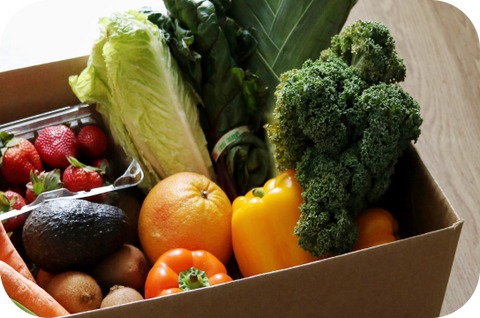

Living More Sustainably
The current state of the climate crisis is a major cause of concern for many individuals around the world. More frequent instances of intense weather, loss of biodiversity, pollution, water shortages and food shortages can be the cause of eco-anxiety. Canada, in particular, has a high level of carbon dioxide emissions, being one of the largest emitters in the world. The World Bank reports that Canada emitted 15.4 metric tonnes of CO2 in 2019 . This is in contrast to other countries such as Germany (7.9), China (7.6), and Brazil (2.1). We have a lot of work to do!
There are many evidenced based ways to combat eco-anxiety:
- Get outside and enjoy nature
- Talk with other people about your concerns
- Take action
Taking action against climate crisis:
On a consumer level, it is often easy to feel incapacitated and helpless when faced with the climate crisis. Despite this, there are still many things that individuals can do to minimize their carbon footprint, and live more sustainably. These changes will not only help alleviate anxiety, but can actually have positive effects for reducing carbon emissions. Though some of these strategies may seem small and obvious, they are incredibly important as even the smallest actions can add up over time.
Walking, cycling or taking transit:
While the convenience of a car or an Uber may be appealing, more than half of transport related emissions are a result of personal vehicles. Not only are these vehicles a huge source of greenhouse gas (GHG) emissions, they also cause intense congestion on roads and contribute heavily to air pollution. In response to this issue, BC Transit adopted low carbon vehicles that align with the clean BC Plan and is committed to the adoption of a fully Carbon Free Fleet of vehicles by 2040.
Buy local:
Food transport accounts for 20% of all food related carbon emissions, and over half of these emissions are generated by high income countries such as Canada. Eating seasonally, and close to home can reduce the food miles and lower emissions. While it's important to consume culturally appropriate foods, prioritizing local food should be a key consideration in reducing carbon emissions associated with food transport.
Eat green:
Emission intensities (i.e. emissions per unit of product) vary widely across different food commodities. Beef, for instance, holds the highest emission intensities at 300 kg CO2-eq per kilogram of protein produced, followed by meat and milk from small ruminants (165 and 112kg CO2-eq.kg respectively). Livestock production emits 14% of all greenhouse emissions from human activity into the atmosphere annually. Cattle farming requires a copious amount of land and water, with 47% of all rainforest deforestation linked to beef production every year, that's 2.1 million hectares every year. Demand for cattle is increasing, and farmers are destroying more and more forests to make room for increased cattle production. These forests are necessary habitat for animals and are important for carbon storage. By consuming less meat and dairy, we can reduce demand for emission-intensive agricultural products and create opportunities for farmers to plant sustainable crops instead. It is a common misconception that individuals need to completely remove meat from their diets, which is not necessarily true. Reducing meat consumption to just one day per week can have a tremendous impact on the environment.
Reduce food waste:
58% of all food in Canada goes to landfills. This results in 56.5 million tonnes of CO2 emitted into the atmosphere each year. Decomposing food in landfills is also responsible for the emission of methane gas, which is an extremely potent greenhouse gas 25 times stronger than CO2. Within produce alone, $3.1 billion worth food is rejected in Canada for cosmetic imperfections or overstocking. In fact, demand and supply fluctuations are a big reason for food waste, especially at the wholesaler level.
There are small steps consumers can take to make a big impact on the total food waste generated in Canada:
- Being aware of where food comes from, and all the steps that were needed for it to arrive at your door is an important thought exercise in order to prevent undervaluing an essential human need. There is so much energy and time that goes into the production and distribution of the items in your fridge, it is important to keep that in mind when purchasing.
- Careful meal planning, proper storage and being scrappy with your recipes are some of the best ways to use up leftovers – at Peko, we love making soups from veggie scraps, and making smoothies! You can also check out some tips to store your produce for as long as possible here.
- Lastly, know that best before dates are not expiration dates! Food that is close to, or best before date is generally good for consumption, using your nose is the best way to determine if a product is overdue.
Buying from companies like Peko can not only help minimize your own carbon footprint, but also actively keep surplus and “imperfect” food out of landfills.
Invest ethically:
It is important to carefully research the companies you choose to support and invest in. Many high returning and attractive companies, for investing such as banks, are involved in morally questionable practices. Choosing to invest in certified B-Corps and companies that don’t participate in natural resource exploitation can have positive humanitarian, as well as ecosystem outcomes.
Sustainable Fashion:
The fast fashion industry is a major contributor to environmental pollution, accounting for 20% of global wastewater and 10% of global emissions. Clothing companies also release half a million tons of microplastics into the ocean each year, which cannot be removed and have harmful effects on ocean ecosystems and human health. To mitigate these issues, it is important to consume less clothing, invest in high quality products, and avoid brands like Shein, Zara and H&M.
Vote, vote, vote:
The biggest step you can take to helping secure a viable future for generations to come is to use your voice to advocate for environmental causes and support candidates and policies that prioritize sustainability. Additionally, have conversations with friends and family about the importance of environmental stewardship and encourage them to take action. Big corporations are largely responsible for fossil fuel extraction, deforestation and pollution. Regulation of the companies comes largely from government officials, so read government platforms and vote for what you think is important!
